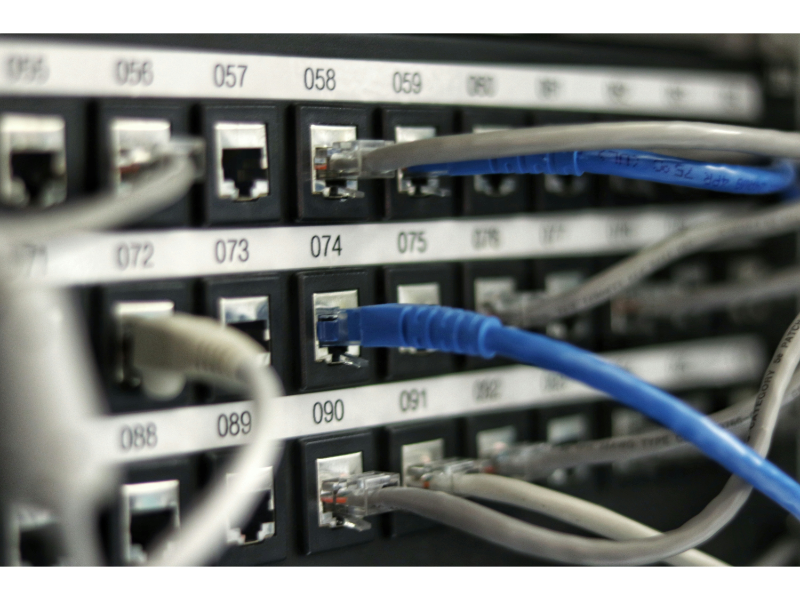- RPKI is a cryptographic framework that protects the Border Gateway Protocol (BGP) by validating that route announcements come from authorized entities, reducing risks like hijacking and route leaks.
- By creating a chain of trust through components like ROAs and Validators, RPKI enhances routing accuracy, simplifies validation, and ensures more secure global internet operations.
Resource Public Key Infrastructure (RPKI) is a vital framework that enhances the security of internet routing. Designed to secure the Border Gateway Protocol (BGP), RPKI mitigates vulnerabilities like route hijacking and leaks by cryptographically validating route advertisements. By creating a chain of trust through components such as ROAs and Validators, RPKI ensures reliable and secure data transmission across global networks. In this article, we explore how RPKI works, its benefits, and its growing importance in safeguarding the internet’s routing infrastructure.
Also read: How Anycast routing boosts DNS resilience and reduces latency

What’s RPKI in Networking?

The internet, often referred to as the “nervous system of modern society,” operates on a complex web of protocols and infrastructure to ensure seamless global communication. One key protocol is the Border Gateway Protocol (BGP), responsible for determining how data travels across networks. However, as technology grows, so do its vulnerabilities. Cyberattacks like BGP hijacking and route leaks expose critical weaknesses in the internet’s routing system. To counter these threats, the Resource Public Key Infrastructure (RPKI) has emerged as a transformative framework.
RPKI enhances routing security by creating a cryptographic chain of trust, ensuring that only authorized entities can announce internet prefixes. This article will delve deep into what RPKI is, how it works, its components, benefits, and why its adoption is critical for securing the future of global internet infrastructure.
Also read: BGP hijack on Fastly highlights improved internet resilience
Also read: ARIN to enhance security services with RPKI and IRR Integration
Key components of RPKI

Trust Anchors (TAs)
Trust Anchors (TAs) are the foundational elements of the Resource Public Key Infrastructure (RPKI) system, serving as the root of trust. In the context of RPKI, Trust Anchors are typically Regional Internet Registries (RIRs), such as ARIN, RIPE NCC, APNIC, LACNIC, and AFRINIC. These RIRs are responsible for allocating IP address blocks and Autonomous System Numbers (ASNs) to network operators globally.
Trust Anchors issue cryptographic certificates to resource holders, enabling them to sign their prefixes and ASNs securely. These certificates form the basis for cryptographically verifying that a particular BGP route advertisement is authorized. Without TAs, the RPKI system cannot establish a reliable chain of trust, leaving networks vulnerable to attacks like BGP hijacking and route leaks. By providing the initial point of trust, TAs play a critical role in ensuring secure and accurate internet routing.
Route Origin Authorizations (ROAs)
ROAs serve as a mechanism to verify that an AS is authorized to originate specific IP prefixes, ensuring that route announcements are legitimate. When a router processes a BGP update, it can validate the announcement against existing ROAs. If the announcement matches the ROA’s specifications, it is marked as valid. If the announcement does not match, it may be classified as invalid or unknown, reducing the risk of unauthorized or incorrect advertisements.
This process helps prevent malicious activities like BGP hijacking, where attackers announce prefixes they do not own, and route leaks, caused by misconfigurations. ROAs are created and managed by resource holders using cryptographic certificates issued by Regional Internet Registries (RIRs) such as RIPE NCC or ARIN.
RPKI Validators
RPKI Validators are essential components of the Resource Public Key Infrastructure (RPKI) system, tasked with ensuring the accuracy and security of internet routing. These tools retrieve and process cryptographic data from Trust Anchors (TAs) and Route Origin Authorizations (ROAs) to validate BGP route announcements. By verifying the legitimacy of each announcement, validators enable network operators to differentiate between authorized and unauthorized routes. Validators categorize routes into three states: valid (matches an authorized ROA), invalid (conflicts with ROA parameters), and not found (no corresponding ROA exists). This classification ensures that only secure and trusted route announcements are propagated within the global network, mitigating risks such as route hijacking and leaks.
Popular RPKI validators, such as Routinator by NLnet Labs and OctoRPKI by Cloudflare, offer robust tools for network operators to integrate with their infrastructure. These tools connect with routers using the RPKI-to-Router (RTR) protocol, ensuring seamless communication and implementation of routing policies. By enabling real-time validation of route announcements, RPKI validators significantly enhance the reliability and security of internet routing, providing a scalable solution for protecting the global internet infrastructure from malicious or misconfigured route updates.
Bruce Schneier, cybersecurity expert and author.
How Does RPKI Work?

The Resource Public Key Infrastructure (RPKI) is a critical framework designed to enhance the security of the Border Gateway Protocol (BGP), the protocol responsible for determining how data travels across the internet. RPKI mitigates vulnerabilities such as route hijacking and misconfigurations by introducing cryptographic validation into routing processes. It operates through a series of steps that seamlessly integrate with BGP, creating a chain of trust between Trust Anchors (TAs), Route Origin Authorizations (ROAs), and routers. By validating the legitimacy of route advertisements, RPKI ensures that only authorized routes are propagated, significantly improving the reliability and security of global internet routing infrastructure.
Creating ROAs and Fetching Data
Network operators create Route Origin Authorizations (ROAs) using certificates issued by their Regional Internet Registries (RIRs). ROAs define the authorized IP prefixes and the Autonomous System (AS) allowed to announce them. These cryptographic attestations are key to securing internet routing. Validators then fetch cryptographic data from Trust Anchors (TAs), forming the foundation of RPKI. Originally, this data retrieval relied on the rsync protocol, but modern validators now use the RPKI Repository Delta Protocol (RRDP). RRDP, operating over HTTPS, enhances performance and security, ensuring seamless communication between RPKI components.
Validating Announcements and Integrating with BGP
Once data is fetched, RPKI validators process and categorize route announcements based on their compliance with ROAs. Announcements are labeled as valid (aligning with ROA specifications), invalid (exceeding prefix lengths or originating from unauthorized ASNs), or not found (lacking a matching ROA). Routers access this validated data through the RPKI-to-Router (RTR) protocol, enabling them to accept valid routes while rejecting invalid or potentially malicious announcements. This integration ensures secure, efficient routing and mitigates risks like route hijacking and leaks, significantly enhancing the reliability of global internet infrastructure.
Bruce Schneier, cybersecurity expert and author.
The benefits of RPKI
The Resource Public Key Infrastructure (RPKI) is a transformative framework designed to secure internet routing by addressing vulnerabilities in the Border Gateway Protocol (BGP). By cryptographically validating route announcements, RPKI ensures that only authorized entities can advertise IP prefixes. This greatly reduces the risks associated with BGP hijacking and route leaks, both of which can lead to network disruptions and compromised data integrity. RPKI not only enhances the security and reliability of global internet infrastructure but also simplifies the validation process with its automated and secure methodology. Its adoption marks a significant step toward building a more resilient and trustworthy internet.
Enhanced Security and Improved Reliability
One of the key benefits of RPKI is its ability to deliver enhanced security by reducing the risks of BGP hijacking and route leaks. These vulnerabilities occur when malicious actors or misconfigurations allow unauthorized announcements of IP prefixes, disrupting traffic flow and exposing sensitive data. By validating route advertisements against Route Origin Authorizations (ROAs), RPKI ensures that only authorized entities can propagate prefixes, mitigating these threats. Additionally, RPKI contributes to improved reliability, as validated routing information prevents disruptions caused by incorrect or malicious updates. This enhances network performance and stability, building trust in global communication systems and safeguarding critical infrastructure.
Simplified Validation and Broader Implications
Traditional methods of validating BGP announcements were manual and prone to errors, relying on less secure databases. RPKI revolutionizes this process by introducing an automated and cryptographically secure framework that simplifies route validation. This eliminates the need for extensive manual oversight, making routing decisions more accurate and efficient. Using tools like Routinator or OctoRPKI, network operators can ensure secure validation and integration with BGP.
The internet wasn’t designed with security in mind; it was built to connect people. Now, as we face growing threats, we must embed trust and verification into its core processes to ensure its resilience.
Vint Cerf, one of the “Fathers of the Internet.
Challenges in Implementing RPKI

The Resource Public Key Infrastructure (RPKI) is a critical framework for securing the Border Gateway Protocol (BGP) and enhancing global internet routing. While its benefits, such as reducing route hijacking and improving reliability, are well-documented, RPKI adoption still faces challenges. These include technical complexity, limited awareness, and the need for global coordination among stakeholders like Regional Internet Registries (RIRs) and ISPs. Despite these hurdles, the future of RPKI holds promise, with ongoing efforts to improve tools, standards, and adoption rates, marking it as a key element in building a safer and more secure internet.
Challenges in Implementing RPKI
Despite its critical role in securing routing, RPKI adoption has been hampered by several challenges. One major obstacle is technical complexity, as setting up and maintaining RPKI infrastructure requires significant expertise, which smaller organizations often lack. Additionally, limited awareness among network operators about RPKI and its advantages hinders its broader adoption. The third challenge is global coordination, as the effectiveness of RPKI depends on the widespread adoption of standards by RIRs, ISPs, and enterprises worldwide. Organizations like MANRS (Mutually Agreed Norms for Routing Security) are playing a vital role in overcoming these barriers by raising awareness and promoting best practices for routing security.
The Future of RPKI
The future of RPKI is promising as the internet continues to grow in scale and complexity. Efforts are underway to develop better tools, such as advanced validators and APIs, which simplify integration and usability for network operators. Wider adoption by smaller ISPs and enterprises is also a key goal, as increased participation will enhance the overall security and reliability of internet routing. Additionally, improved standards, such as refinements to the RPKI Repository Delta Protocol (RRDP), aim to address emerging challenges. As Tim Berners-Lee, the inventor of the World Wide Web, observed, “The web as I envisaged it, we have not seen yet.” Advancing RPKI is an essential step toward realizing a secure and resilient internet that benefits all users globally.
Also read: LACNIC migrates to new RPKI system
Also read: ARIN improves RPKI services to enhance routing security
The web as I envisaged it, we have not seen yet.
Tim Berners-Lee, the inventor of the World Wide Web
FAQ
Resource Public Key Infrastructure (RPKI) is a framework designed to secure the Border Gateway Protocol (BGP), which is responsible for determining how data travels across the internet. It ensures that only authorized entities can advertise specific IP prefixes, preventing threats like BGP hijacking and route leaks. RPKI is crucial for improving the security and reliability of global internet routing.
RPKI creates a chain of trust by issuing cryptographic certificates to network operators. These operators generate Route Origin Authorizations (ROAs) that define which Autonomous Systems (AS) are allowed to announce specific IP prefixes. Validators then verify route announcements against these ROAs, categorizing them as valid, invalid, or not found. Routers use this validated information to accept legitimate routes and reject unauthorized or malicious ones.
RPKI offers enhanced security by reducing risks like BGP hijacking, improved reliability by validating routing information to prevent disruptions, and simplified validation through automated and secure processes. It ensures a more trustworthy and efficient internet infrastructure, benefiting both users and network operators.
The adoption of RPKI is hindered by technical complexity, as it requires expertise to set up and maintain, which can be challenging for smaller organizations. Limited awareness among network operators about RPKI’s importance also slows its implementation. Additionally, effective deployment requires global collaboration among internet service providers, network operators, and regional authorities.
The future of RPKI involves wider adoption, particularly among smaller organizations and ISPs, improved tools for easier integration, and ongoing refinement of standards to address emerging challenges. As the internet continues to grow, RPKI will play a key role in ensuring secure, reliable, and scalable routing for the global network infrastructure.

